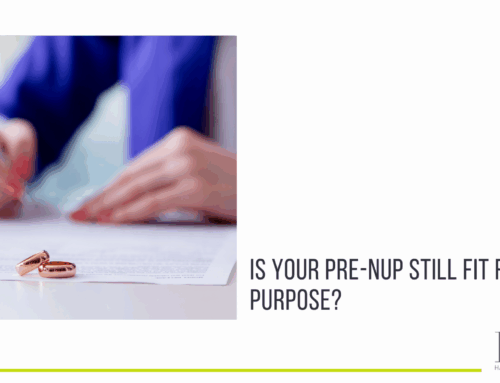If you’ve decided to get married for a second (or subsequent) time, then this is absolutely cause for celebration. Finding another person you want to commit to is fantastic and a real signal that you’re ready for a new life ahead. However, depending on your experience in your previous relationship, you might find yourself approaching your upcoming nuptials wearing a more practical hat than the one you were wearing the first time around. This might be especially true if you have children and accumulated assets to consider.
At Harrogate Family Law, we want you to be 100% confident going into your new marriage.
Update your will and inheritance wishes
It’s important to know that your existing will becomes null and void when you marry. If you don’t create a new will, intestacy rules will come into play should anything happen to you.
It’s important to consider how you want your estate divided among your new and existing family members. It’s advisable to have discussions around this with your new partner ahead of your marriage. It may be that such conversations include some challenging questions and even a difference of opinion. Do you include your new partner and their family in the division of your estate? Will your new spouse be the first in line ahead of any children you have from a previous relationship?
The answers to some of these questions will depend on how you own any property you intend to purchase and live in with your new spouse, and you must seek legal advice before entering into any firm decisions here.
You might wish to leave a letter of reasoning explaining your decisions, but this is entirely up to you and depends on your relationship.
Lasting power of attorney
In addition to updating your will, you should consider who you would like to put in the position of lasting power of attorney should you become unable to manage your decisions for any reason.
Pre and post-nuptial agreements
Whilst it’s not always the case, many people enter second marriages a little more financially savvy than in their first, particularly if they’ve amassed wealth and assets from a previous relationship.
Pre or post-nuptial agreements are an opportunity to clarify exactly how your assets will be protected or divided in the event of a future divorce. You should both take independent legal advice, and it’s prudent to discuss with your financial advisor or accountant before entering into any agreement.
While pre- and post-nuptial agreements aren’t legally binding in England and Wales, they can be highly persuasive if appropriately executed.
How will you manage finances and properties as a couple?
Regarding finances and assets, it’s essential to be clear with your partner whether you intend to merge your income and assets or keep them separate. You’ll also need to think about how you plan to own any property you buy together – you can learn more about that here.
As we’ve mentioned above, seeking legal advice is essential.
Your circumstances and decisions will depend on you as a couple, but if you need to feel more confident about your best options, we’d be happy to support you as you legally plan for your future.
Update insurance policies and beneficiaries
From pensions to life insurance, take some time to review all your policies and update any beneficiaries as appropriate if you’d like them to include your new spouse or extended family.
You’ll also need to notify insurance providers of your new marital status to ensure you and your family are appropriately covered.
Talking about finances with your spouse can seem daunting, but it’s necessary for your peace of mind and financial health.
At Harrogate Family Law, we’re here to support you as you put your best foot forward in your new relationship. To discuss any of the things on the checklist above, please get in touch with us today.






